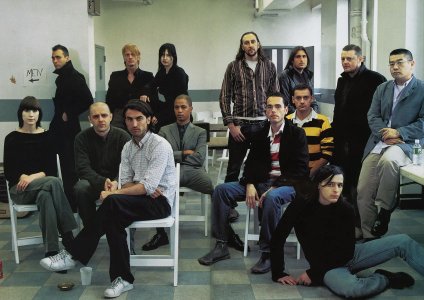I was thinking recently about how many designers who seemed all the rage a decade or so ago have lost a fair amount of lustre / downsized their labels - or gone out of business entirely.
Zac Posen, Christopher Kane, Proenza Schouler, Thakoon (remember Anna Wintour hyping him up in The September Issue?), Mary Katrantzou, Peter Som etc. An abundance of creativity, yet the harsh realities of business have come for several of them already.
But still, other relatively young labels like Rick Owens, Thom Browne, Off White and Vetements have ridden the wave and seem (for now at least) to have cemented their status as global brands.
Is there a secret to the latters' success? Or is it just a combination of luck and finely tuned business sense?
I think that talent is not enough to create a brand. And even beyond Anna Wintour, you have designers who created their Fashion houses and they are nowhere to be found today: where is Halston? DVF? DKNY? Jean Colonna? Jean Louis Scherrer? Or even my beloved Sonia Rykiel? Montana?
I think it’s a combination of many things: talent, innovation, a sense of pragmatism in understanding the environment but also, great business sense or power.
Some designers have the talent and some great business partners. When you look at the history of YSL, nothing would have been possible without Pierre Bergé because YSL struggled to be a commercial success for years. And everything that has turned out to be his design language really made sense in the late 70’s/early 80’s.
There’s this fine tension between building yourself as a designer and building a business.
It’s very difficult to be known for something (Mary Katrantzou, Zac Posen), having a kind of instant success (critical or commercial), being able to evolve into it, change but also build a universe around it. The idea of a universe is the most elusive aspect of it because that’s what will make it possible to introduce categories of products and create a brand.
The reality of the career of a designer is that they only have build a legacy when they either stop, retire or become insanely repetitive. But in order to get to that phase, there needs to be time, development, accident.
I think Rick Owens or Thom Browne have a clear sense of their identity as designers but they also have evolved overtime. RO follows somehow the same ethos of his work as it was introduced to the mass in 2002 but I guess it’s slightly different from what it was in the 90’s. The same for Thom Browne.
Katrantzou became the print girl. But from the moment her work became kind of mainstream, it was time for her to move on to something else. Kane became lost at some point too. The same for Giles Deacon and others. I can tell you that I don’t see a lot of brands today survive in 20 years.
Off White and Vêtements are like canvas in a way. They are brands rather than Fashion houses. A brand, a name can always be reinvented.
The person I think who is very interesting is Jacquemus because he build a brand. And I mean a brand in a marketing sense. Jacquemus is a name, a mood, a color scheme and of course some it products but he is probably the only one besides Thom Browne and Tom Ford, who came with a brand first. And in a way, it allows him to play in a frame already set up while others are creating are trying to create a frame while building a body of work.
But what is interesting in his case is that he had 3 breakthrough collections but still hasn’t solidified his status as a designer whereas a lot of other talents have that legitimacy and that respect in the industry.
But I think that a lot of brands are on life support nowadays: from Kenzo to Marc Jacobs, from Simone Rocha to Alyx.


